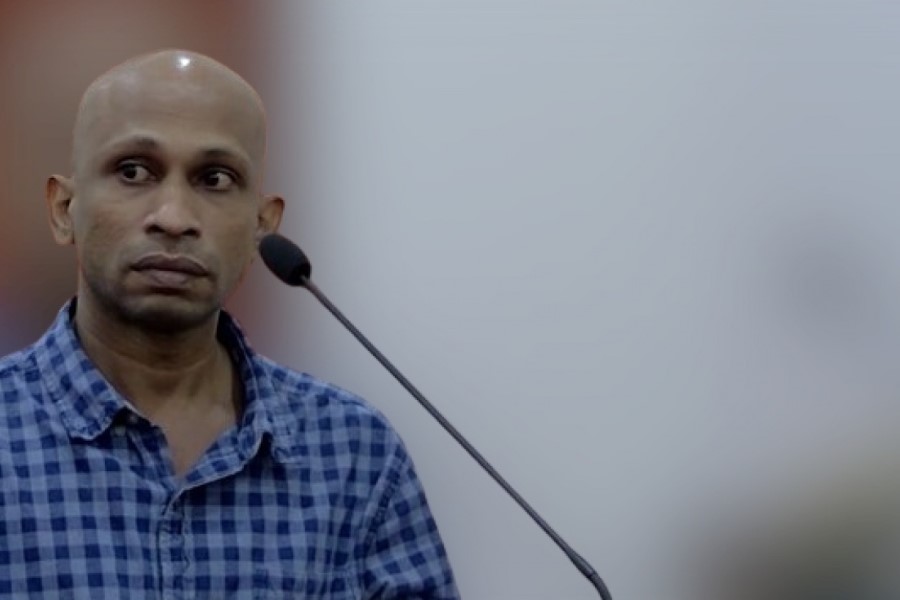



Maldivian activist Mohamed Rusthum Mujuthaba
Mohamed Rusthum Mujuthaba, also known under his pseudonym Rusthum Russo, is an advocate for human rights on social media, including the right to freedom of religion or belief. As a result of his activism Rusthum regularly receives threats and lives in hiding. He has spent almost half of the last three years in detention.
Rusthum reports that he was first detained in September 2019 after authorities reportedly arrested him on suspicion of insulting Islam and for possession of obscene material, however, no charges were ever filed. Shortly after his release in March 2020, Rusthum was re-arrested and convicted of ‘obstructing the course of justice’ for which he served a one-year term.
According to Rusthum, the Maldivian authorities brought charges against him in November 2021 in connection with his first detention. He faces charges of criticizing Islam and possession of obscene material under sections 617 and 622 of the penal code, respectively. If convicted, he faces five months in prison.
Like many others who face allegations in countries with the harshest penalties for ‘blasphemy’, Rusthum has been unable to find a lawyer willing to represent him. According to media reports, Rusthum was given just one week in which to find a lawyer. He subsequently felt forced to skip multiple hearings while he sought to find someone to represent him. Rusthum’s next hearing is due to take place on 23 June 2022 where he will be forced to represent himself.
According to the Freedom of Thought Report, non-religious people in the Maldives face grave violations of their rights. There is no formal guarantee of the right to freedom of religion or belief in the Constitution of the Maldives. Undergoing a battle between liberal and literal interpretations of Islam, serious human rights violations have been linked to fundamentalists, and attacks on perceived atheists and homosexuals have been carried out in recent years.
The Constitution guarantees freedoms of expression and the press, but only in a manner “not contrary to the tenet of Islam.” The tenet of Islam is defined as “[t]he Holy Qur’an and those principles of Shari’ah whose provenance is not in dispute from among those found in the Sunna of the Noble Prophet, and those principles derived from these two foundations”. Statements or actions believed to be contrary to this object are subject to criminal sanctions.
Criticizing Islam is outlawed under Section 617 of the Penal Code and punishable by up to a year in prison and a fine. While many religious ‘crimes’ are not individually spelled out under the Penal Code, a wide berth is given for the prosecution of ‘hudud‘ crimes under Sharia law. The Penal Code grants judges discretion to impose Sharia penalties, including in cases of so-called ‘apostasy’ and ‘blasphemy.’
Accusations of ‘blasphemy’ can and do result in vigilante violence, especially where actors feel the State has failed in its duty to prosecute the accused. A climate of impunity for attacks on alleged ‘blasphemers’ emboldens would-be assailants to carry out further attacks, in the knowledge that they will face no consequences for their actions.
Humanists International fears that Mohamed Rusthum Mujuthaba is being targeted for his peaceful exercise of his rights to freedom of religion or belief and expression.
Humanists International calls on the Maldivian authorities to drop its case against Mohamed Rusthum Mujuthaba and cease its campaign of judicial harassment against him. To this end, the organization calls on the authorities to repeal its blasphemy laws.
As a registered charity and NGO, we rely on the donations we receive from our members and supporters to help us campaign on humanist issues, lobby for humanist values at international institutions (including the United Nations) and protect humanists at risk of persecution and violence. If you support our aims, please consider giving a one-off or regular gift today. Thank you.